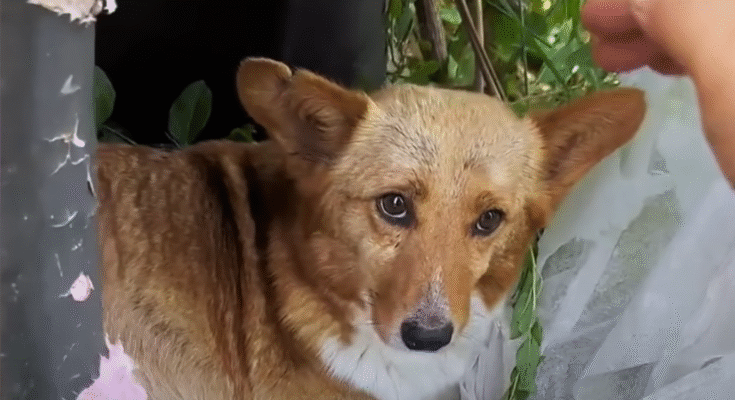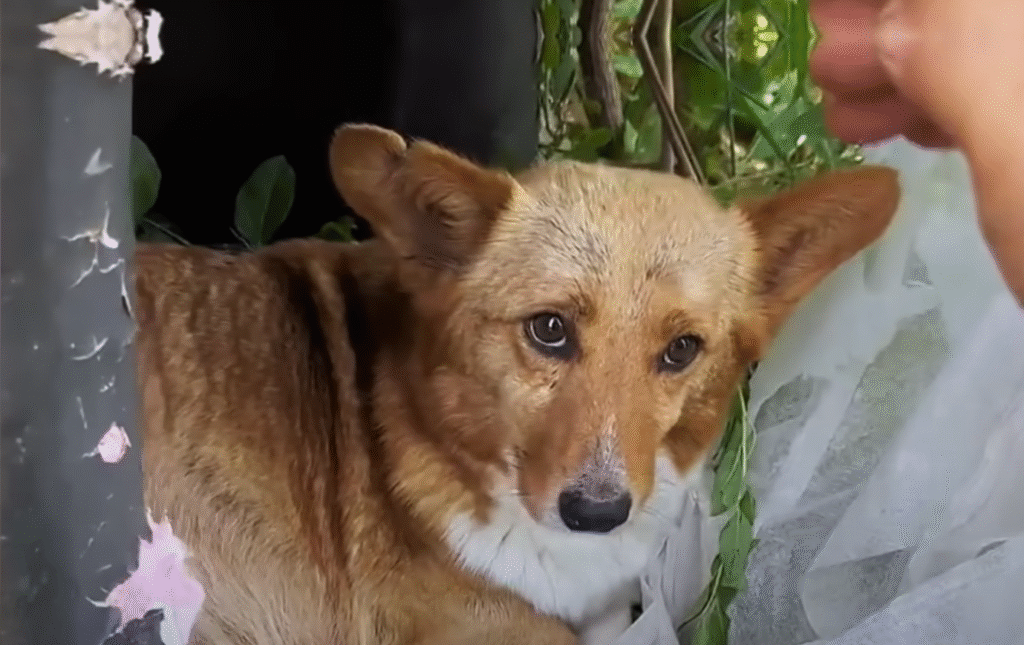
The rain had been falling for hours, a heavy downpour that blurred the edges of the world and turned the dusty road into a river of mud. I was making my way back from the market, trying to shield my face from the wind with a piece of cloth, when I heard a faint, desperate cry — not from a child, but from a woman. The sound cut through the storm, trembling with fear and hope all at once.
When I turned toward the voice, I saw her — a young mother, soaked to the bone, her long hair clinging to her face. In her trembling arms was a small bundle wrapped in a thin blanket. She stumbled toward me, her bare feet splashing through the puddles, and before I could even ask what was wrong, she fell to her knees in front of me.
“Please,” she gasped, holding the baby up toward me, her voice breaking with every syllable. “Please, save my baby.”
For a moment, I couldn’t speak. The rain was loud, thundering against the ground, but her words were louder still — they echoed inside me, stirring something deep and raw. The baby wasn’t moving much, only a faint whimper escaping its tiny lips. I could see the child’s pale face, the bluish tinge on her small fingers. She was freezing.
I knelt beside them, placing my hands gently on the baby’s forehead. She was burning up — feverish, weak. The woman’s eyes were wide and wild, filled with both terror and determination. “She hasn’t eaten in two days,” she cried. “I tried to find milk, medicine, anything… but no one helped me. You’re the first person who stopped.”
Her words tore at me. I wasn’t a doctor, not even a nurse — just a passerby. But in that moment, her faith in me was absolute, like I was her last thread of hope in a world that had already turned away.
“Come with me,” I said quickly, lifting my umbrella over her and the baby. “There’s a clinic not far from here. We’ll get her help.”
She shook her head weakly. “They turned us away… they said I couldn’t pay.”
That made my chest tighten. The rain poured harder, as if the heavens themselves were grieving. I looked down at the baby — her breath was shallow, her eyelids fluttering. There was no time to think, only to act.
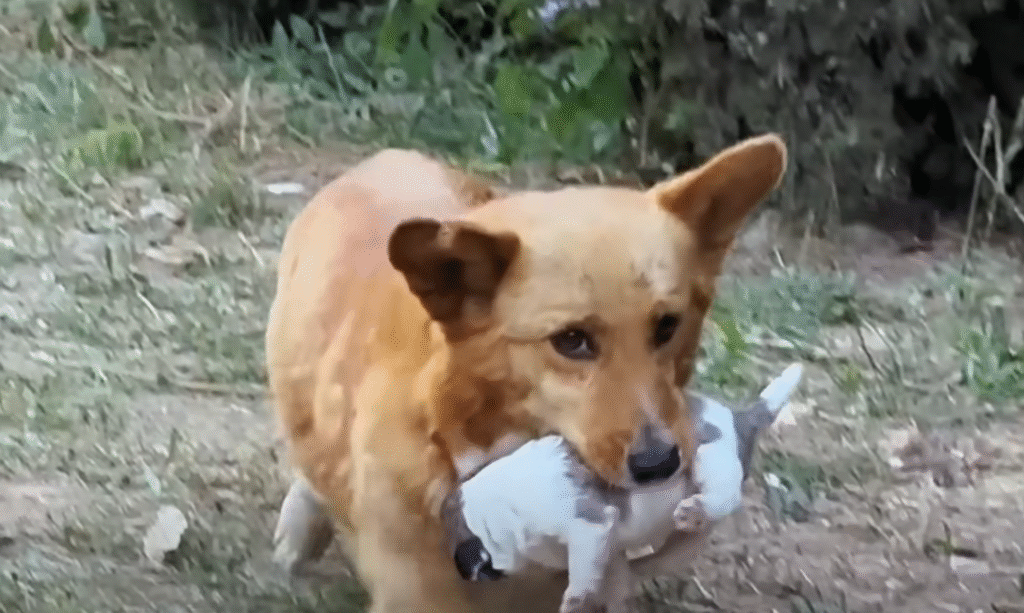
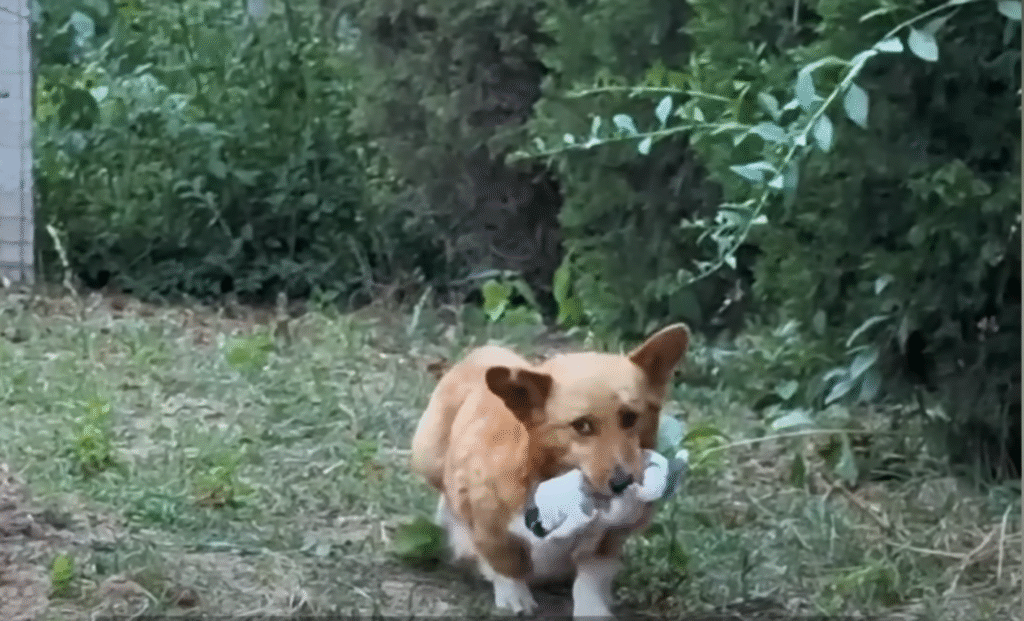
I took the baby gently from the mother’s arms, wrapping my scarf around her tiny body to keep her warm. “We’ll get her there anyway,” I said firmly. “Don’t give up now.”
The mother looked up at me, eyes filled with gratitude and despair all at once. She nodded, and together we ran through the storm.
When we reached the clinic, the front desk nurse frowned the moment she saw us — two drenched strangers carrying a barely conscious child. “We’re closing soon,” she said coldly. “And we can’t admit anyone without payment.”
I slammed my bag on the counter, pulling out what little money I had. “Take it. Just help her!”
Maybe it was the sight of the mother behind me, her face streaked with tears and rain, or maybe it was the sheer desperation in my voice, but the nurse finally relented and called for the doctor.
Within minutes, the baby was taken to the emergency room. The mother collapsed into a chair, sobbing silently, her hands clasped together as if in prayer. I sat beside her, unsure what to say. The thunder outside continued to rumble, a cruel reminder of the storm still raging beyond these walls.
After what felt like hours, the doctor emerged. “She’s stable for now,” he said gently. “Severe dehydration and fever. She’ll need medicine and care for a few days, but she’ll live.”
The mother burst into tears — the kind of tears that come from the deepest corners of the heart. She reached for my hand, gripping it tightly. “You saved her,” she whispered. “If you hadn’t stopped…”
I shook my head, my throat thick with emotion. “You saved her. You never gave up.”
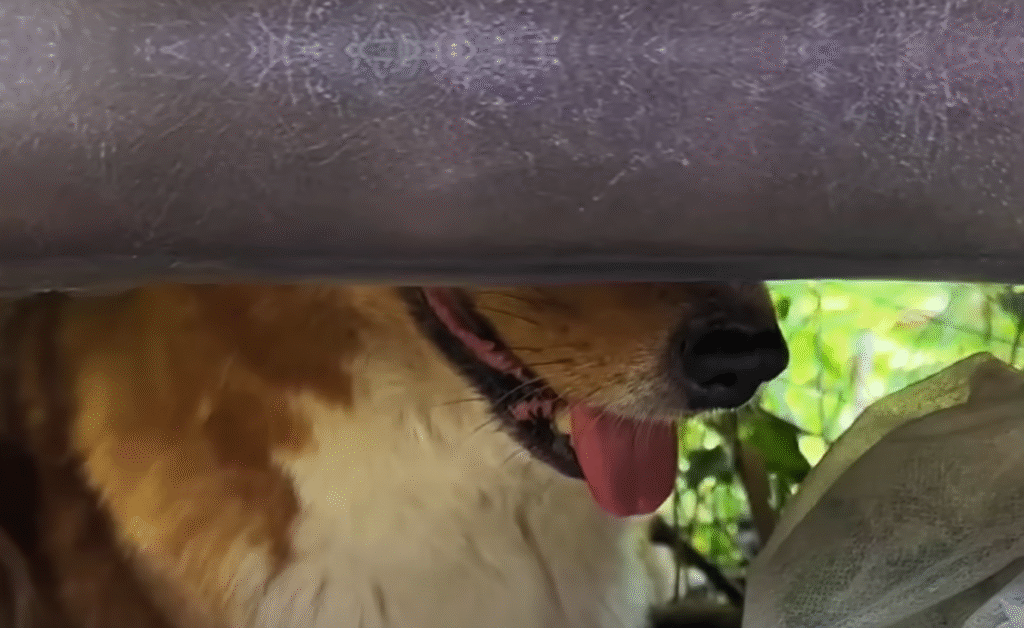
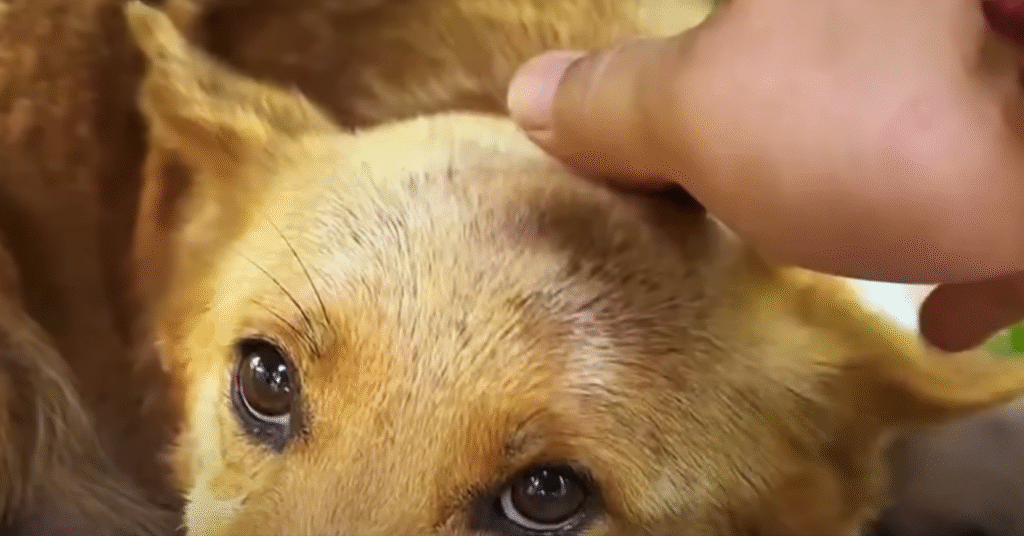
Over the next few days, I visited them often. The mother’s name was Lina, and her baby — a girl — was called Nari. They had been living on the streets ever since Lina’s husband died in an accident months ago. With no family, no job, and no support, she had wandered from town to town, trying to feed her child with whatever scraps she could find.
When she spoke, there was no bitterness in her voice — only exhaustion. “Sometimes I thought about giving her to someone better,” she confessed one evening, staring out the window. “But every time I looked at her, I couldn’t. She’s all I have left.”
I understood then what it meant to love with nothing left to give — to cling to hope even when the world stripped everything else away.
Nari’s recovery was slow but steady. By the fourth day, she could open her eyes and smile faintly when her mother hummed to her. That tiny smile changed everything. It was as if light had returned to Lina’s eyes.
The clinic eventually asked them to leave, as the bills were piling up, but I couldn’t just let them go back to the streets. So, I took them home with me. My small house wasn’t much — just a single room with a leaking roof and an old bed — but it was warm and dry.
That first night, as Lina rocked Nari to sleep, I watched them silently, realizing how fragile and strong life could be at the same time. The sound of the baby’s breathing was soft and steady now — a rhythm of survival.
Weeks passed, and slowly, hope began to take root again. Lina helped me with chores, and I helped her find small jobs cleaning and cooking. Together, we built a quiet routine. Sometimes, Nari would crawl toward me, her laughter filling the room like sunlight breaking through clouds.
One afternoon, Lina looked at me and said, “I used to think no one in this world cared. But now, every time I see you holding Nari, I know I was wrong.”
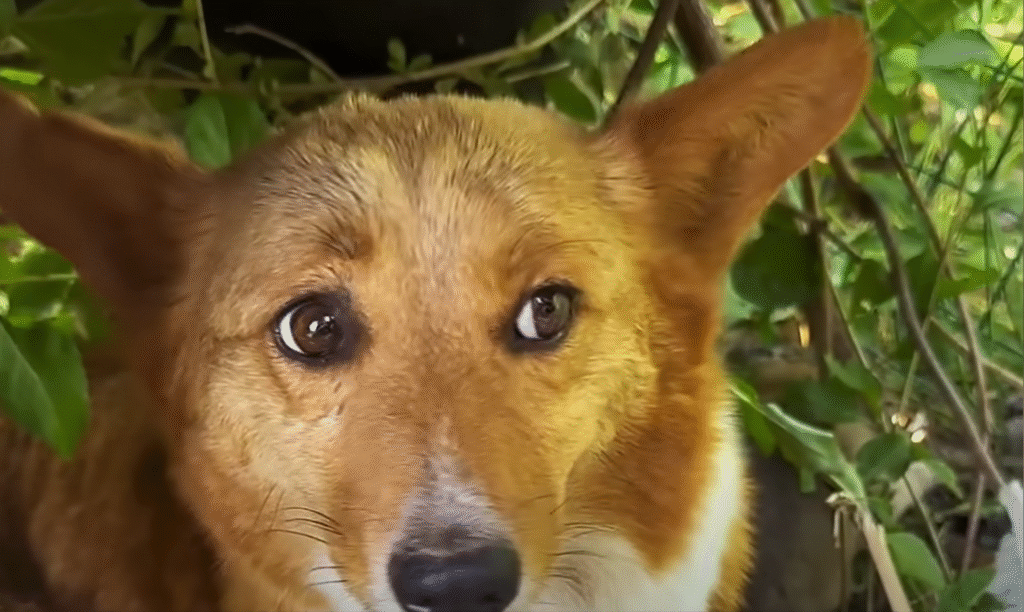
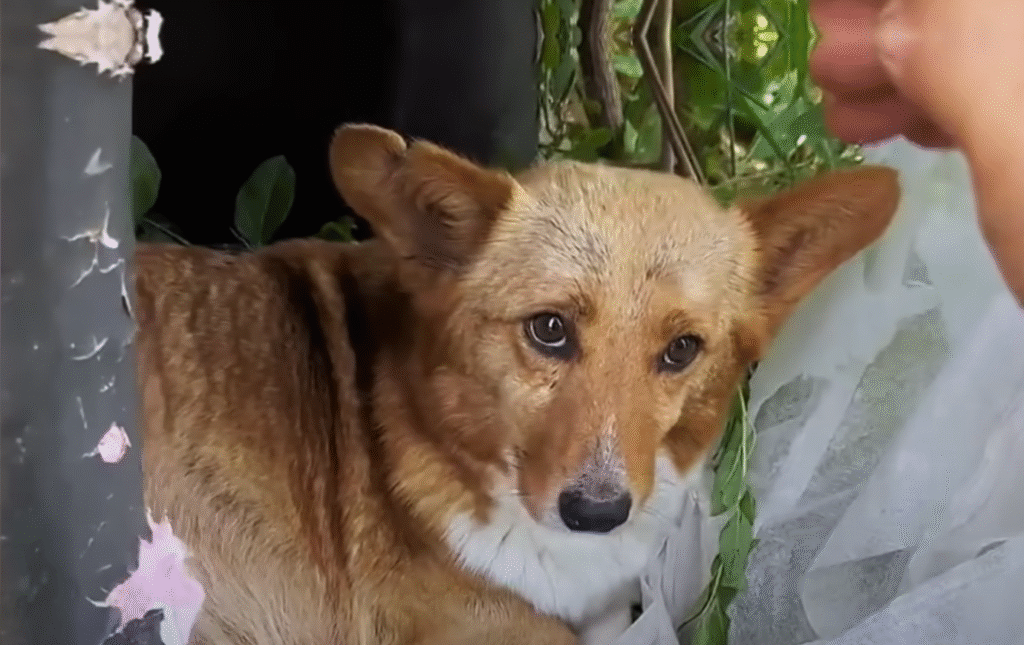
Her words humbled me. I hadn’t done much — only what any person should do when faced with another’s suffering. But to her, it was everything.
And maybe that’s the truth of life: sometimes salvation doesn’t come from miracles or wealth, but from a single act of compassion — from stopping when everyone else keeps walking.
Months later, Lina found a stable job at a small bakery, and I helped her rent a little room nearby. The day they moved out, I held Nari one last time. She was healthier now, her tiny fingers tugging at my hair, her bright eyes full of life.
Lina hugged me tightly. “I’ll never forget what you did,” she said softly. “You didn’t just save my baby. You saved me, too.”
As they walked away, I felt a bittersweet ache — the kind that comes with letting go of something precious but knowing it’s for the best.
That night, as I sat by the window listening to the rain once again, I thought back to that stormy day. The moment when a desperate mother had placed her fragile hope in my hands, and I had chosen to carry it.
Sometimes, life gives us no warning before it demands our courage. Sometimes, a stranger’s cry becomes the turning point of two lives.
And sometimes, love — in its purest form — is not about blood or obligation, but about hearing someone whisper “please” through the rain… and answering without hesitation
